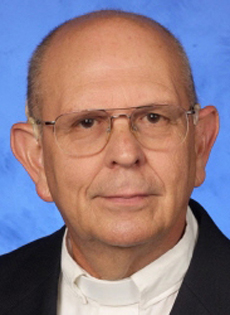
Promoting vocations
Monday, October 29, 2018
*Fr. Eduardo Barrios, SJ
The bishops—beginning with the Pope—and the superiors of religious institutes are concerned about the shortage of vocations to the ministerial priesthood and the consecrated life. This drought has worsened in countries with a long Christian tradition, like those in Europe.
The first vocational promoter was Jesus Christ himself when he said, “Ask the master of the harvest to send out laborers for his harvest” (Lk 10, 2). We can conclude that the prayer for vocations should be the privileged means to promote them.
The four Gospels have moments that show the “master of the harvest” recruiting followers. The Synoptic Gospels report the vocation of several fishermen named Peter, Andrew, James and John (Mt 4, 18-22), and that of a publican, known as Levi or Matthew (Mk 2, 13-17). The fourth Gospel also has a scene of the vocation to discipleship with two new names, Philip and Nathaniel, also known as Bartholomew (Jn 1, 35).
After the Ascension, Jesus ceases to be visible, but that does not stop him from continuing to call disciples, as the vocations of Matthias and Paul demonstrate. Post-paschal vocations began with them.
Since the number 12 had symbolic weight, once Judas Iscariot was dead, the remaining eleven apostles decided that one of the disciples who had accompanied Jesus from the baptism in the Jordan until the resurrection should occupy the vacant post. Through prayer and some sort of lottery, Matthias was chosen by the Lord (Acts 1, 15ff).
Paul's vocation was more dramatic and charismatic: The risen Christ himself appeared to him when the man then named Saul was on his way to Damascus to persecute the first Christians (Acts 9, 1-19).
The title of apostle was extended and applied to many more disciples, such as Barnabas, Silas, Priscilla and Aquila, among others. In our times, Pope Francis has given the title of apostle to St. Mary Magdalene.
Presently, every baptized person should consider himself or herself anointed as an apostle of the Lord. There are no passive members among the People of God; all have apostolic missions to carry out.
However, it is imperative for the Church that many listen to the call to priesthood and religious life. Youth ministry must bring up the matter so that all young people, male and female, discern to see if they are being called to the most radical apostolic life of all.
Even though the best thing for each one is to do God's will over their lives, the promoters of vocations must affirm without any shame that priestly and religious professions objectively outdo all other professions.
Without intending to belittle doctors and engineers, for example, let us be clear that doctors have patients who die sooner or later, and engineers’ most solid constructions crumble over time. Of course, all professions, exercised competently and with the intention of serving others and glorifying God, have supernatural value.
Nevertheless, the work of priests and consecrated persons has a privileged supernatural objective. It goes directly to the immortal souls of humans. Those completely dedicated “with an undivided heart” (St. Paul) to the evangelization and sanctification of the people, lead to faith and friendship with God. That is where the efforts to build the civilization of love here on earth will emerge.
But not everything stays at the level of the temporal life. The ultimate intention of a priest is that his parishioners, having concluded their earthly pilgrimage, reach eternal life in the Kingdom of Heaven. The priesthood, therefore, is the profession with the broadest scope, which bears everlasting fruits. It reaches the depths of man in the present time, freeing him from sin and channeling sanctifying grace, and opens the doors to eternal communion with God. When it comes to promoting vocations effectively, the eschatological dimension of salvation cannot be ignored.
The young man with concerns about the priestly vocation should be offered a project of spiritual and apostolic life that leads him to communicate with the glorious Christ. The condition for choosing Matthias—having witnessed the Resurrection—remains valid today. Now we come to the experience of the living and glorious Christ through the exercises of piety, the sacraments and apostolic services. It is, above all, in the silent withdrawal where the meeting with the risen Jesus Christ takes place. It is there that we can hear once again the invitation that the Lord wants to extend to many young people, “You follow me” (Jn 21, 22).


Comments from readers